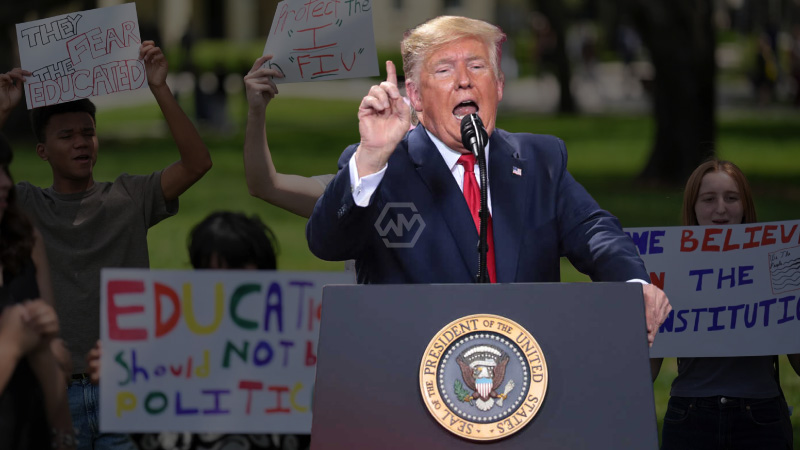- U.S. halts new student visa interviews to expand social media screening.
- Harvard faces federal scrutiny over alleged antisemitism and CCP ties.
- Critics fear long-term damage to U.S. academic reputation and global student flow.
The Trump administration has halted all new interviews for student visas, including F, M, and J categories, as part of a sweeping national security review.
In a parallel move, the administration targeted Harvard University, seeking to revoke its certification to host international students due to alleged antisemitic incidents and purported links to the Chinese Communist Party.
US Escalates Scrutiny of International Students in Wake of Security Concerns
The White House’s temporary halt of student visa interviews marks a significant shift in immigration policy affecting global education. This decision affects thousands of prospective students, leaving embassies and consulates worldwide with suspended appointment slots. Authorities say the pause allows them to implement stringent new protocols for background checks.
Social media vetting is expected to play a major role in the updated screening system. Officials argue that tracking digital footprints will help identify affiliations with extremist ideologies. This effort comes amid accusations that some U.S. university campuses have become breeding grounds for pro-terror rhetoric.
Harvard’s legal clash with the federal government exemplifies the broader tension between universities and the administration. The school is fighting to maintain its ability to admit international students, claiming the government’s accusations are politically driven and unfounded. The case has drawn widespread attention and could set legal precedents for other institutions.
Universities across the country have voiced concern about the chilling effect these actions could have on international enrollment. Educational leaders warn that America risks losing its status as the top destination for global talent. Some are calling for a bipartisan review to ensure that security measures do not compromise academic openness.
The U.S. government’s visa restrictions reflect a growing focus on national security but risk damaging its long-standing position as a hub for international education and innovation.
“Security must be balanced with openness; when one is overemphasized, the other suffers.” — Former U.S. Secretary of Education Arne Duncan



